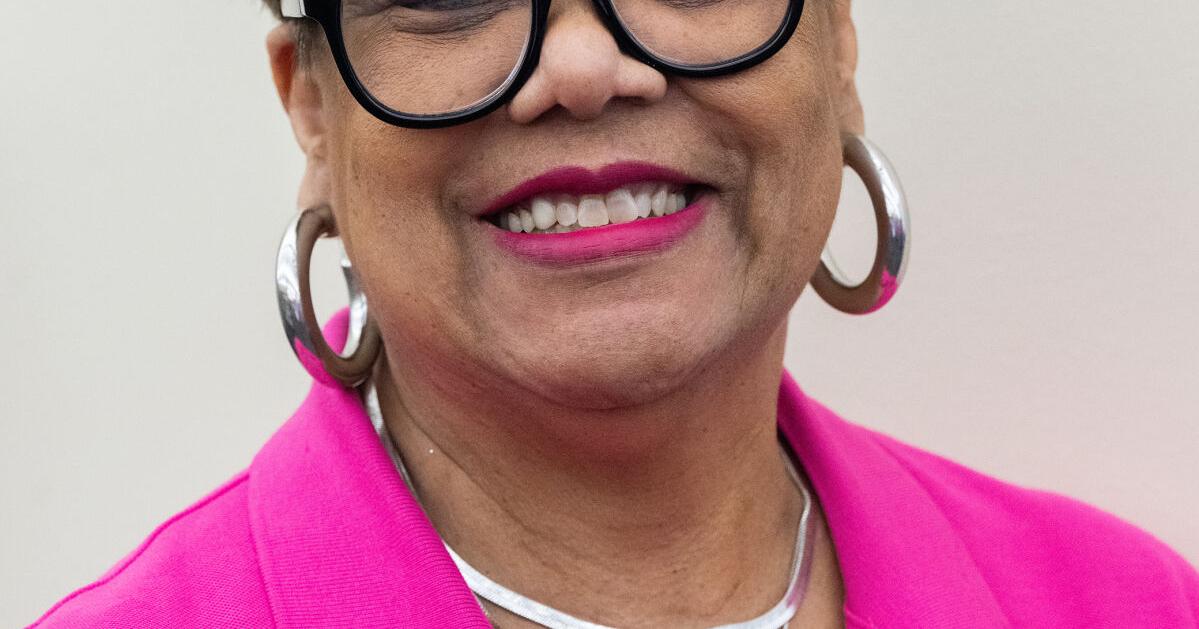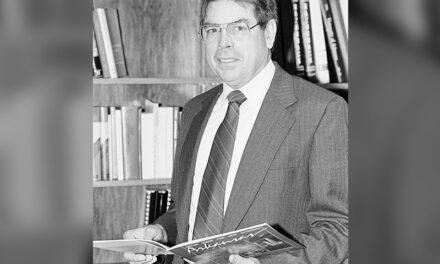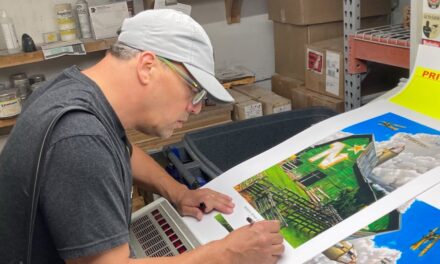
When Phyllis Coleman Mouton was a teenager, she helped to integrate Mount Carmel Academy in Lafayette. She became vice president of workforce and economic development at Baton Rouge Community College from 1997 until her retirement, when she was named Distinguished Retiree. She was the first Black woman to be named president of the Rotary Club of Baton Rouge, one of the largest Rotary Clubs in the world.
She was the first African American woman named secretary of the Louisiana Department of Labor.
She presently serves as the founder and president of Women of Wisdom of Acadiana, a nonprofit organization with 162 diverse women in Lafayette.
Phyllis is married to Lyle Joseph Mouton Sr. and they have three children, Lyle Jr., Lynn and Leah; a son-in-law Marcus; and seven grandchildren: Alexis, Kayla, Cameron, Keegan, Cole, Khloe and Kaden.
What are your thoughts on the importance of leaders being observers first?
I love to observe. I love learning about the person’s style. You may not hear their voice as much, but you can see how they do things — they’re speaking to you through their actions, and that is most important for me.
Sometimes it’s good to be quiet and just listen and observe. I do more of that today.
What advice would you give to your younger self?
I would say to my younger self, “Understand, you don’t know it all. You need to get support and true voices and responses from people who respect you and want to see you advance.”
I would have said, “Get to know mentors.” I had good mentors, but I would have had more conversations with more mature leaders.
I respect intergenerational leadership, but when I was younger, I would have liked to have understood that the people who have gone through life can share so much to help you avoid pitfalls or to help you enhance your life much more than trying to do it yourself.
What advice would you give to women in the working world today?
Oftentimes, women don’t ask for what they want. I see too many women who see the word no or allow their inner fears to keep them from asking for what they want.
The word no is not going to kill you. And it perhaps means, in a lot of cases, no, not now.
Listen carefully. Don’t be afraid to have a voice — and I use that a lot — because I think women need to use their voices more.
Who have been some of your influences through the years?
First, my mother. She had a quiet demeanor, but she spoke things that made me think. She allowed me to experience the world around me. When I say the world, I didn’t go past New Orleans, but for a high school student, she was comfortable with me making new friends and spending time with them over the weekend in Baton Rouge. That’s something you’re just not going to find — Black mothers who felt that comfortable.
In her own way she challenged me to do better. If I said, “Mother, I’d like to integrate Mount Carmel.” She’d say, “Well, if that’s what you want to do, do it.”
She was the first influencer.
Others include James Oliver, Ralph Thomas, Odon Bockey, James Caillier, Dennis J. Shields, Dolores Spikes, Rolfe McCollister, Lorna Bourg, Alfredo Tillman Bester, Gov. Buddy Roemer and more.
I need to say thank you to these people more because it was adults such as these people who really gave me the confidence, the desire to be persistent, the resiliency and the ability to lead.
If I didn’t have people like that behind me and beside me — they put me at the table to make critical decisions with those people who were considered movers and shakers.
You’ve been such a trailblazer. What do you see as the importance of having someone who looks like you in leadership positions?
It’s critical. It represents the truth of what America is. However, it means nothing if I don’t pull others up from behind. It means you have a real responsibility when you’re the first.
You have to continue the cycle. It can be just you, and then it ends. No, you have to reach back and pull other Black women forward with you. That’s the purpose of Women of Wisdom in part — to pull all women forward, but certainly we know the disparities that have existed. Those that have prevented women of color from moving forward. We still experience such a wide wage gap. When are we going to see Black women rise to the occasion of being in leadership?
In a lot of corporations, we’re not there. But it takes the drive, the desire, the uncomfortableness of Black women to want to be there.
Those of us who have had the opportunity, we have a responsibility.
My mother used to say, “Never forget where you have come from, Phyllis, but never allow where you have come from to keep you from where you’re going.”
When she said that to me, I understood it. Not only where you came from in the neighborhood or the community but never forget internally the values you were taught as you move forward through your journey.
What are you most proud of?
No doubt, my family. I’m proud that I’m in the Catholic Church. I’m proud, but at the same time, I question a lot of things. I had the opportunity to grow up with the first Black priest in Lafayette. That was rich for me.
What is the mission of Women of Wisdom?
First and foremost, Women of Wisdom is about unity, of diverse women and ethnicities. We hear often that women are stronger together. Well, we’re stronger with different ethnicities and even stronger if you’re intergenerational women and women from all walks of life.
Women of Wisdom didn’t hand-pick its members — that’s the beauty of it. If someone is interested, you express it, and you’re invited to orientation. Orientation is a cup of coffee and a conversation.
The whole idea is that if this community of Lafayette is going to be truly vibrant, then we have to love each other and be comfortable talking to each other. We have to fellowship together. When you are able to do that, you can make positive impact in so many areas within the community.




